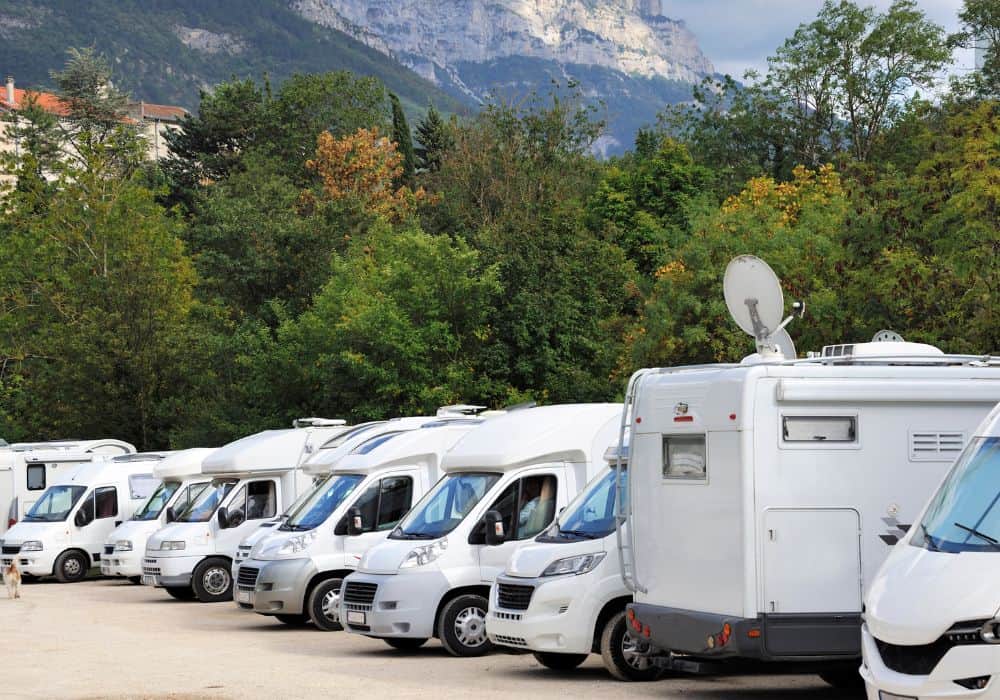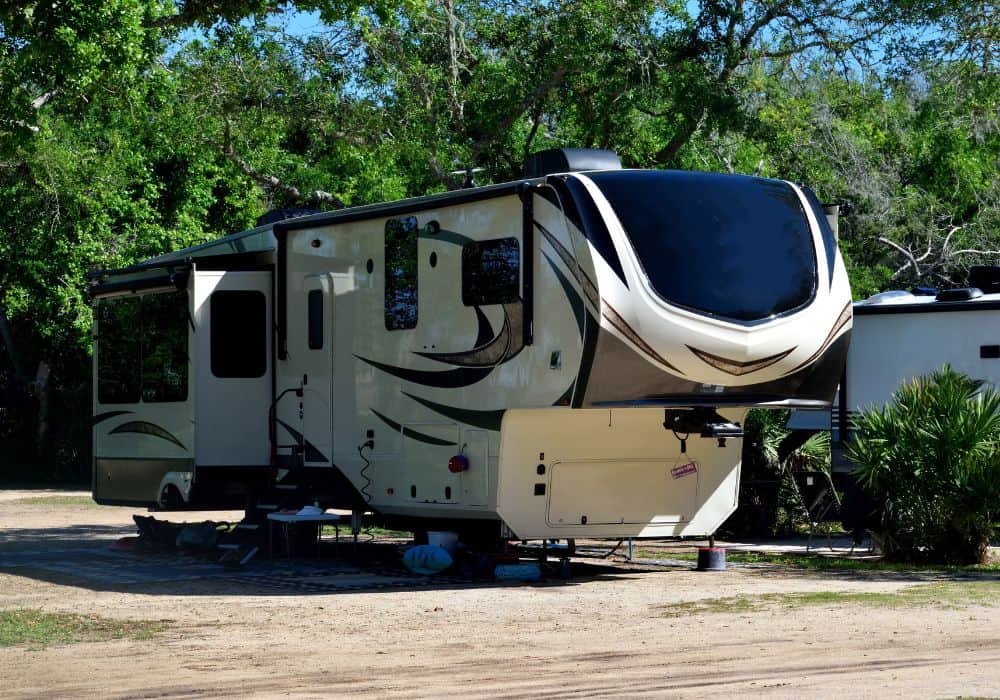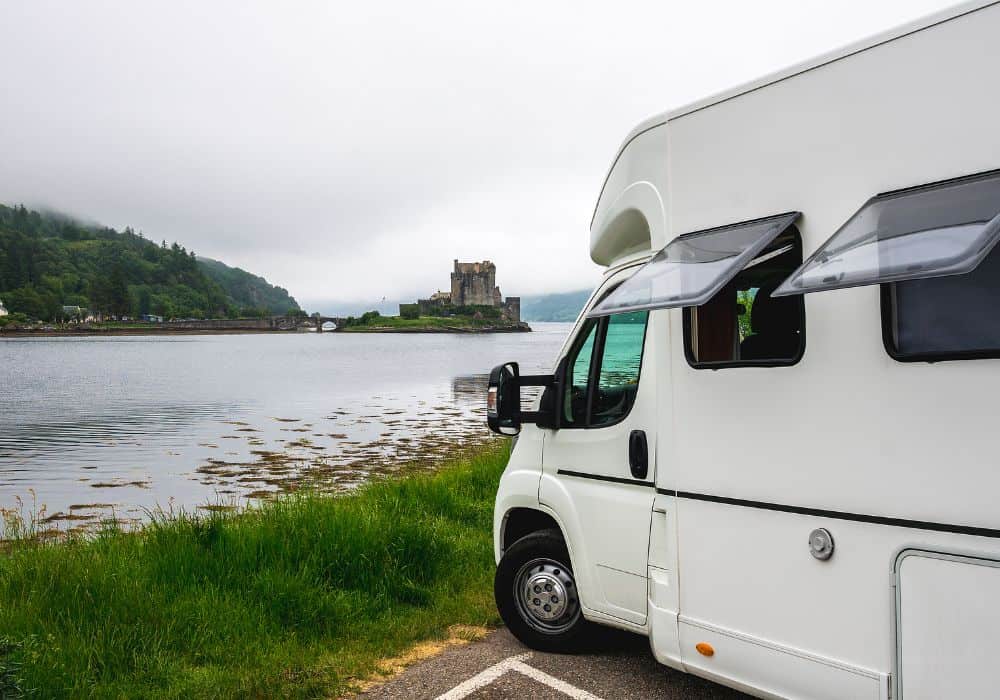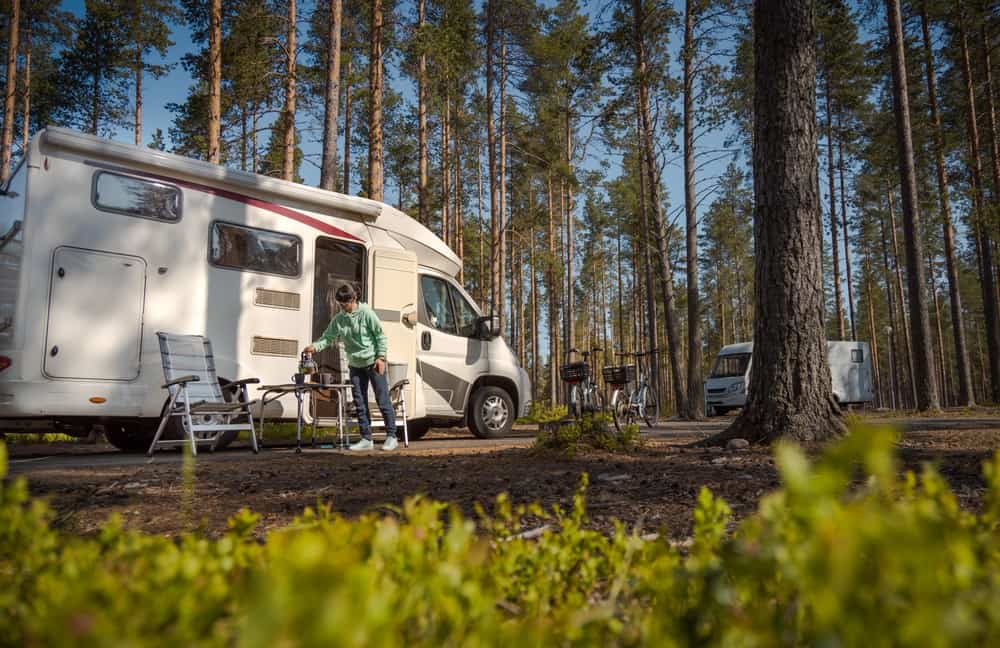Have you ever gone somewhere in nature with your family, parked your camper, and just when you wanted to start enjoying the little vacation, you saw that the camper battery was not charging when plugged in?
This situation is tantamount to catastrophe if there’s no other power source nearby because, without a battery, your RV is just a pile of junk. The energy in the battery is limited, so you won’t be able to use the RV for a long time, which means that you might stay where you are for some time. What if you’re in the middle of nowhere?
Luckily for you, we will be explaining the most common causes that can lead to this problem. There is no need to panic as most of them are easily solvable.
Table of Contents
Camper Battery Not Charging When Plugged In?

1. Are The Battery Terminals Corroded?
Corrosion of the battery terminals is a common reason for the battery’s inability to charge. You’ll see it in the form of a white powder (lead sulfate) which reduces the amount of electrical current that can reach the battery bank by adding resistance.
If it turns out that this is the issue, you can clean the terminals with a combination of baking soda and water and a wire brush, and in that way, get your battery to its normal condition。
Be sure to wear gloves and eye protection, as the white powder is toxic and should not be inhaled, swallowed, or allowed to come into contact with the skin.
Even if corrosion of the terminals is not a problem, periodically clean them since it will not only prevent this situation from occurring but also extend the life of your RV battery.
2. Do You Have Faulty Wires?
Next on the list of things that can cause the camper battery not to charge when plugged in are issues with faulty wires.
There are many possible problems since the cables can be corroded, damaged, worn out, cut, or loose. If the problem in question is corroded wires, use the same trick as with the rusty terminals to clean them. In case of damaged wires, you will have to replace them with new ones.
Lastly, if it’s loose wiring that’s causing issues, you will just have to tighten the wires.
Sometimes the RV’s and battery cables are in good condition but wired incorrectly. Before proceeding to the next step, consult your owner’s manual to see which wires go where.
3. Are There Any Blown Fuses Or Tripped Breakers?

If everything is fine with the terminals and wires, it’s time to move on to fuses and breakers. A blown fuse is yet another common culprit for the battery not charging, so you will have to inspect all the inline fuses in your RV’s converter to check this. If necessary, replace any blown fuses.
A tripped circuit breaker is one of those things we often forget about when there is a problem with electricity because we “like” to panic and exaggerate. Locate your RV’s breaker box to see if this is causing the issue, and flip any breakers that might have been tripped.
You can also try to find the shore power’s breaker box and check if everything’s okay with those breakers.
4. Is Everything Okay With Shore Power?
Of course, it is easy to blame the RV and its components for the battery charging issues, but sometimes the problem is not with them but with the shore power post.
If other campers use the shore power without difficulties, the issue is really in your RV.
However, it is possible that you are alone in the camp or that other people are not using it at that moment. You can check if the shore power post is properly functioning by asking the camp/park management or trying to charge another device.
5. Is Something Draining The Battery Too Quickly?

Sometimes it can also happen that even though the battery is being charged, it is discharged so quickly that you don’t notice it and think it is not being charged at all. In this case, we are talking about a parasitic drain.
If a consumer or consumers that use much more energy than the battery provides are connected, they will quickly drain the battery. Disconnect all the consumers of electrical energy and try recharging the battery.
6. Is The Battery Dead Or Losing Charge?
Even if no component uses energy, your batteries may fail to hold a charge. It can happen, for example, if the battery is old and worn out or has reached the end of its service life.
To inspect if this is the case, you will first charge the battery for a few hours. After that, you will stop charging and leave the battery for about one hour. Finally, you will use a multimeter or voltage meter to check if the battery has lost any charge. The reading of a full battery should be at least 12.6 volts.
If the voltage is lower, it means that your battery is losing charge. If the reading is 12.0 V or even lower, you have a dead battery on your hands, which signifies that you have to replace it with a new one.
7. Is The Cooling Fan Not Working Properly Or At All?
Another possible culprit of the problem we’re talking about in this article is a faulty cooling fan of the converter.
The fan is responsible for cooling the converter and regulating its temperature. Like all other electrical and electronic internal components, the cooling fan can break down, which will then cause overheating of the converter.
This situation will lead to its malfunctioning and, eventually, short circuit, which can not only cause problems with the battery, such as its inability to take charge but much more significant damage to your RV.
To check for this, locate the converter and its fan. When the converter is working, you should hear the sound of the fan, which is a sign that it is functioning.
However, it might not be working properly, i.e., it might not be taking away the heat produced by the converter, which is why you will have to inspect this part of your RV in detail and see if there is excess heat in there. If that is the case or if the fan does not work at all, it means that you will have to replace it.
8. Do You Have Any Burned Diodes Or Resistors?
Living in an RV with no converter would be pretty boring. It would actually be impossible because we wouldn’t be able to use any of the electrical and electronic components in our RV.
The RV converter converts (duh) 120 V AC power from the RV into 12 V DC power, thus enabling us to supply all components with electricity and charge the battery.
The parts that are most responsible for this conversion are the diodes. If they burn or break, your converter will not work correctly, which means the battery will not charge. To see if this is the issue, take a look at the circuit board and examine all the diodes on it.
Resistors are also an important part of the circuit; if there is excess heat, they may also get affected and burn. While checking the diodes, inspect all the resistors and their status. They also might need changing.
Of course, this is a slightly more demanding technical job than, for example, replacing a wire or cleaning a terminal. Therefore, we only recommend getting your hands dirty if you know what you are doing.
9. Does Your RV Have A Battery Disconnect Switch?
Many newer RVs come with a built-in battery disconnect switch, and more and more RVers who own older models are requesting that this switch be added.
This switch allows you to turn off the battery with a single movement of the hand. Also, when you are in a camp or park, you can turn off your RV’s battery, connect the RV to the park’s power source, and use it exclusively.
Finally, it helps battery discharge as slowly as possible when the RV or devices that consume electricity are not in use, which minimizes the damage of passive draw to the system.
Anyway, it is possible that you just forgot about this switch and that there is no problem with the battery. If this is the case, turn the switch off, and your battery will be able to be charged again.
Conclusion
In this article, we brought you nine possible reasons for the camper battery not charging even though it’s plugged in. You will be able to examine most of these problems yourself and, even more importantly, fix them.
If you have corroded battery terminals or damaged, loose, or incorrectly wired cables, your battery will be able to charge within a few minutes after fixing the problem.
Checking for blown fuses, tripped circuit breakers, a malfunctioning shore power outlet, parasitic drain, or battery disconnect switch also shouldn’t take too much time.
You can inspect if the root of the issue is an old or dead battery by yourself as well, but changing the battery might be a job for someone trained.
Finally, if a bad cooling fan or burnt diodes and resistors are causing the problem, it might be better to stay away and call an RV technician.
Remember to visit the comment section if you have something to ask!
